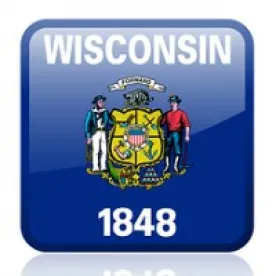Wisconsin’s Chapter 128 has long been something of a “wild west” of insolvency proceedings. Modeled on the provisions of the federal Bankruptcy Act of 1898, the statute empowers a circuit court to appoint a receiver to administer a debtor’s estate and to issue a protective order enjoining creditors from taking enforcement actions. But it lacks any direction for subjects addressed in detail in the modern Bankruptcy Code, such as the treatment of executory contracts or the operation of a debtor’s business during the pendency of the proceeding.
One area where the Legislature has provided some guidance is preference claims. Section 128.07(2) provides that a receiver can seek to avoid and require return of a payment made by the debtor within 4 months before the assignment is filed if “the recipient has reasonable cause to believe that the enforcement of the judgment or transfer would effect a preference.” The term preference is defined in section 128.07(1) as (1) a transfer of property (2) made by an insolvent debtor (3) the effect of which is to allow the recipient creditor to obtain a greater percentage of his or her debt than other creditors of the same class. The purpose of the statute is to prevent a single creditor or group of creditors from diminishing the debtor’s assets to the detriment of all other creditors.
Whether a particular payment is a preference is generally not in dispute, for it is often easy to determine whether a debtor was insolvent or the creditor received more than he otherwise would. The question is the level of knowledge a creditor must have for the receiver to prove that the creditor had “reason to believe” the payment was a preference. Does the creditor need to know merely that the debtor was insolvent, or must he also know that the payment would allow him to receive more than other creditors? The Wisconsin Court of Appeals weighed in this week with its opinion in Freund v. Nasonville Dairy, Inc., 2018AP1215 (Sept. 10, 2019).
The court swiftly held that the statute means what it says: a creditor receives a preference only if it has knowledge that the payment would effect a preference. To have this knowledge, the creditor must know both (1) that the debtor is insolvent, and (2) that the payment would put him in a preferential position. The court recognized that direct proof of these facts is almost never available, and it adopted a list of factors set forth in Goetz v. Zeif, 181 Wis. 2d 628, 195 N.W.2d 874 (1923), that includes, among other things, the relation of the parties, the usual or unusual nature of the transfer, and the credibility and forthrightness of the witnesses as to their knowledge.
Most of the court’s opinion is devoted to analyzing the case under those factors. Liberty Milk Marketing Cooperative was a milk contractor that purchased milk from dairy farmers and sold the milk to cheesemakers like Nasonville Dairy. Between 2012 and 2014, Nasonville made many “milk advance” loans to Liberty, with Liberty often owing Nasonville hundreds of thousands of dollars. Beginning in January 2014, Nasonville also started making “check swaps” with Liberty. Each company would write a check to the other, Liberty would cash Nasonville’s check immediately, and Nasonville would hold Liberty’s check until it received word that Liberty had the funds to cover it. The final check swap before Liberty’s demise occurred on November 24, 12014, and Nasonville cashed Liberty’s $290,000 check six days later, on November 30. The next month, Liberty was unable to pay its milk producers and filed an assignment for the benefit of creditors under Chapter 128.
The receiver filed suit seeking to recover the $290,000 payment to Nasonville. The Court of Appeals affirmed the circuit court’s holding that the payment was a preference. Nasonville could easily tell that Liberty was insolvent in light of its ever-increasing need for additional funds. The Court of Appeals also had no trouble concluding that Nasonville knew it received more than other creditors. In fact, the circuit court had found that Nasonville agreed to the check swaps when Liberty had trouble paying the milk advances because the check swaps would better protect Nasonville.
The court’s ruling appears to be a win for creditors and receivers alike. Creditors with little relationship to a debtor will be better able to respond to preference demands because a receiver will have a hard time proving knowledge of a preference unless the creditor had some additional insight that would provide knowledge of preferential treatment. Receivers, on the other hand, are likely to seize on any available facts that might prove a creditor had such insight. The Court of Appeals was clear that the creditor’s knowledge is inherently a question of fact, which almost certainly precludes a quick resolution in litigation. This ruling also further separates Wisconsin state law preference claims from preference claims under the Bankruptcy Code, which has no knowledge requirement for recovery preferential transfers.



 />i
/>i

